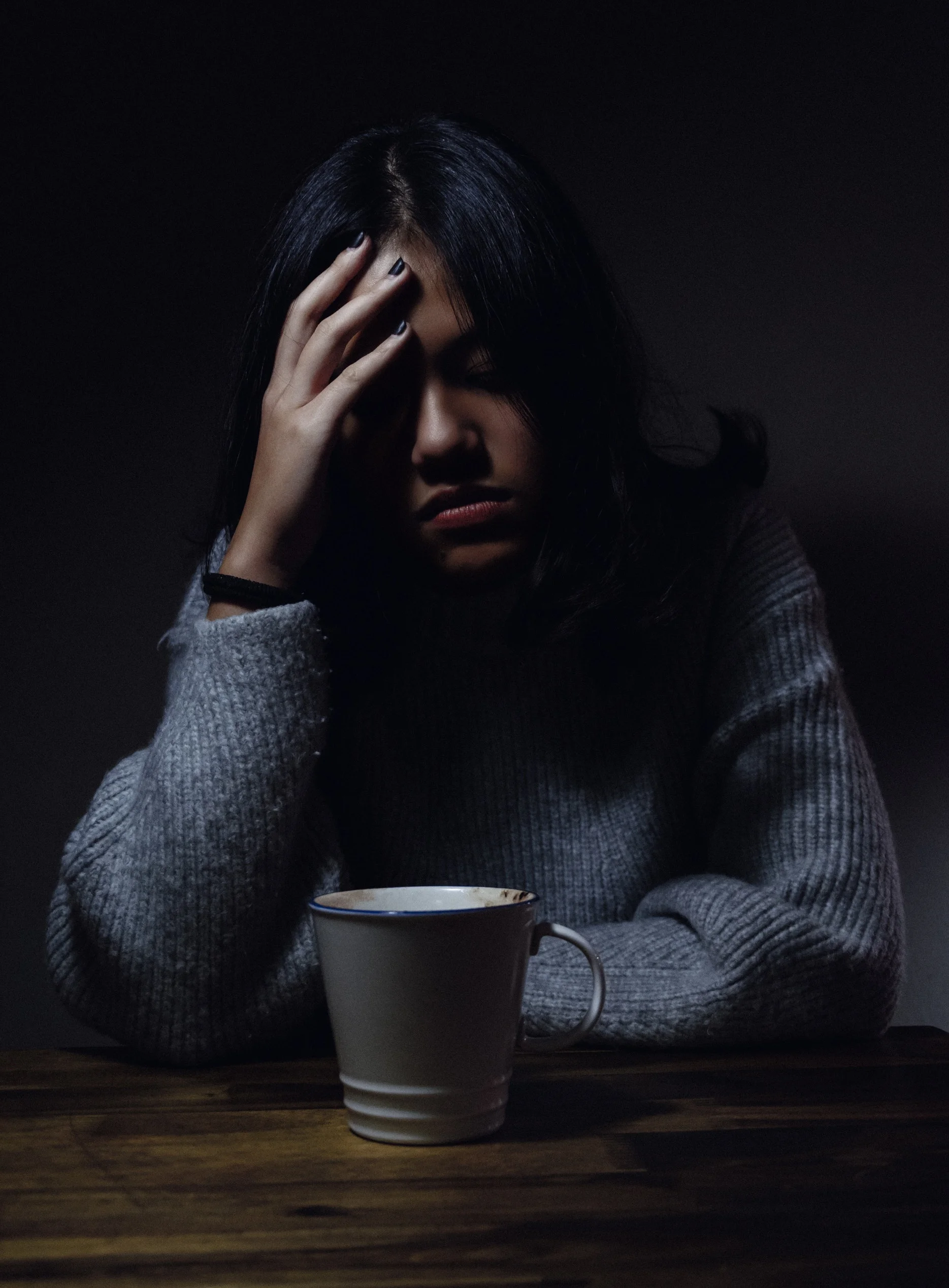They're The Third Most Common Mental Health Symptoms, So Why Do So Many Of Us Not Know About DP/DR?
We all have days where we feel a little… off. You don’t quite feel with it. Everything’s flying past you, as you remain stuck in robot mode. What was I doing again? What day is it today?
Maybe it’s a lack of sleep that puts you a little off track. Haven’t had that vital morning coffee, perhaps. But for others, this is an ongoing problem, hardwired into them. And yet this mental disorder doesn’t seem to be talked about much.
Derealisation and depersonalisation are two closely connected mental conditions that fall under the disassociation umbrella. These disorders are said to be the third most common mental health symptoms, after anxiety and depression. So why don’t we know more about them?
Derealisation relates to your surroundings – you may not feel particularly attached to the real world. Does life feel like a dream? Does the room look a little too flat and lifeless? If you feel unconnected to your surroundings, you might be suffering from derealisation.
Depersonalisation is all about you. When you look in the mirror, do you feel as if it’s a stranger staring back? Do you feel as if you’re watching yourself from the outside, unattached to your own body? Do you feel as if you’re on autopilot, imitating emotions rather than really feeling them?
Now, let’s be clear about one thing: I’m not a doctor. I’m not a psychiatrist. I’m not a therapist. I cannot diagnose anyone with these conditions. Much like we can feel anxious without having anxiety, or feel depressed at times without living with depression, a lot of us are familiar with aspects of derealisation/depersonalisation. But it worries me how these disorders are said to effect at least 650,000 in the UK alone, and yet even Doctors have frowned blankly at these unaccustomed terms, saying, 'de-what?'
Often, DP/DR manifests in people as a coping mechanism. If you’ve been through a traumatic event, or are having a particularly stressful time, your mind cuts ties with the world. Your brain has good intentions – it’s just trying to protect you – but it stops people from living a normal, invested life. There’s also links to recreational drug use. Too many hash cakes might give you a bit of an outer body experience, and this can spark similar unattached feelings.
But the thing is, whatever you’ve been through, a lot of the time we just don’t know why DP/DR happens. We don’t know enough full stop.
There’s certainly things that trigger a zombie-like episode in myself. At work, the bright, supermarket lights can leave the aisles looking false, causing me to stumble disorientated to my shift. That’s followed by repeated, robotic conversations, consisting of 'do you need a bag?' and 'thank you for shopping with us – have a lovely evening.' Suddenly I don’t feel like myself anymore.
I feel like it’s an attempt to escape life, for sure. Let me get sucked into a two-hour movie – become far too invested in the storyline and characters, perhaps – and once it’s all over I’ll crack abruptly back into the real world. Somebody’s pulled the plug in me, Matrix style, and I’ve fallen into an environment I know I’m familiar with, yet still feel like I’m seeing for the first time.
There is concern over the lack of knowledge and understanding surrounding DP/DR, with GPs misdiagnosing patients. A lot of the time, the symptoms are passed off as anxiety, which is commonly found in those with DP/DR, but the conditions are still very separate. How can we expect bewildered sufferers to come forward, when those with power to do something to help aren’t sending them in the right direction?
DP/DR isn’t just a case of living away with the fairies. It’s not just a daydream – it’s more than that. Some people forget significant chunks of their life. Some people are convinced that the only way their head can get over a trauma is by descending into, what they can only see, as madness.
DP/DR can feel pretty bizarre at times. And this can leave people feeling very isolated, especially if they have little understanding or diagnosis of their disorder in the first place. That’s why there needs to be more awareness.
Thankfully, conditions such as depression and anxiety are talked about a lot more openly in our society. There’s still a lot of work to do, but we’re going in the right direction. But mental health is a very broad topic. Nobody should be left feeling ashamed by a condition they didn’t ask for in the first place, whether that’s DP/DR, bipolar disorder, OCD, or anything else for that matter.
Talking to somebody about how you feel – rather than letting things build up and up and up in your head – can be the first step to getting better. Getting things off your chest may seem scary. They won’t believe me, you might think. They’re going to think I’m nuts. But actually, getting your thoughts out in the open can make them seem a lot more real and treatable. DP/DR can be very hard to explain to others, so it’s so important for people to listen and make people’s problems feel valid.
Like a lot of things, DP/DR can be hard, but it is treatable. Have the decency to put your head – and your happiness – first.








